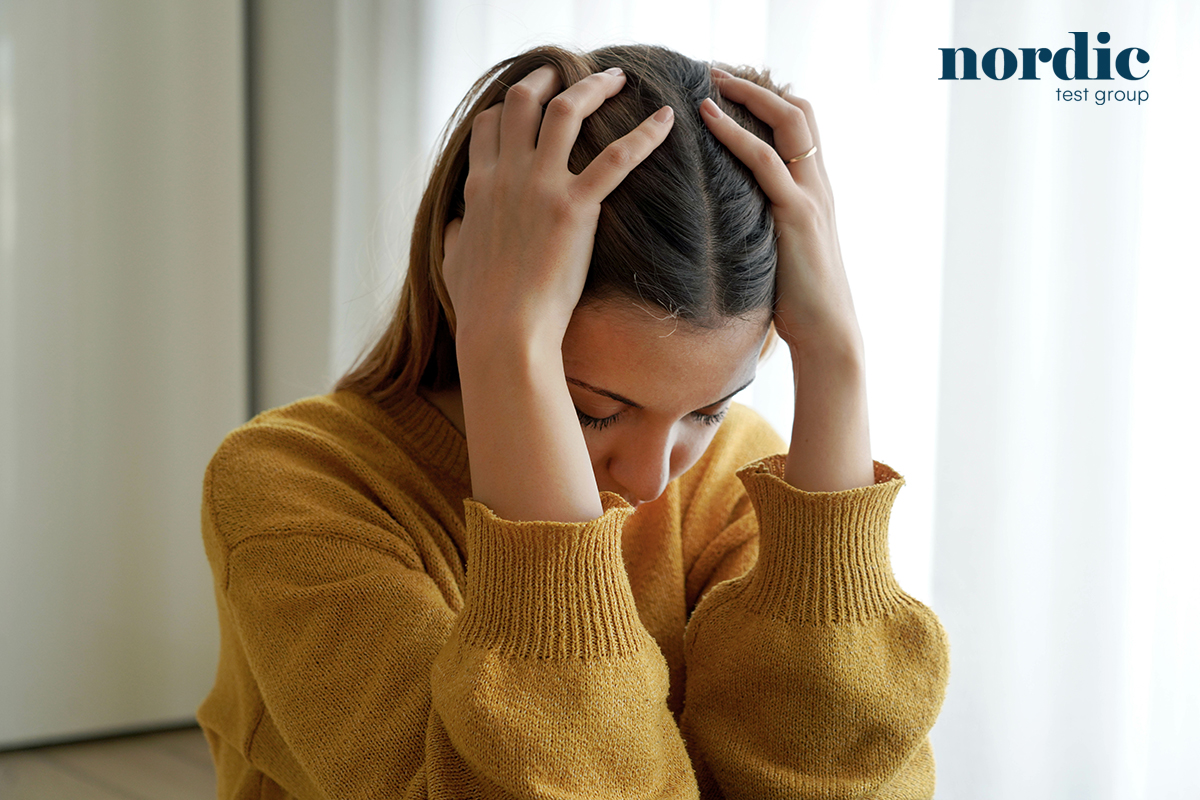Positive Home Test - 5 Quick Tips
Published 2023-11-19 03:17 by Nordictest
It can be a shock to test positive with a home test, whether it's a pregnancy test or a strep throat test. What should you do when you test positive? There are several important steps to take to ensure you continue to feel well.
Let's take a look at 5 important pieces of advice to keep in mind if you get a positive result on a home test.
5 tips for a positive result on a home test:
1. Confirm the result
Of course, you can take a chlamydia test as well, but if this also shows positive, it's time to contact healthcare. You can do this in several ways. If you prefer a more anonymous conversation with a doctor online, it can be easily arranged.
False positive results do exist, and it's important to remember that. No home test is perfect, and moreover, the test may have reacted to markers that indicate a different illness. Therefore, it's important to get professional help to interpret the tests.
If a doctor believes another test is necessary, you can schedule an appointment for it. Sometimes, you may not even need an additional test. Based on the information you provide about the test and your symptoms, a doctor can give you further instructions on how to proceed.
2. Don't panic!
Just because you test positive for syphilis, you shouldn't panic. You can have the disease for a long time without treatment before it poses a serious threat to your heart health. It's natural to feel anxious when you receive a positive test result, but you really don't need to turn your whole life upside down!

Remember that this test is not the same as a diagnosis. Until the test is confirmed by a qualified healthcare provider, you should work on staying calm. Don't jump to hasty conclusions about your health and the risk of death. Thoughts of illness and death won't contribute to better health!
3. Don't self-treat
Even if you've read something interesting online about using items from your fridge to cure herpes, it may be worth not trying this on your own initially. Until you've received professional guidance, you don't know for sure that you actually have the infection you suspect.
It should be noted that there are treatments that may seem natural and mild but can actually have negative effects. If you try to treat sores and other issues at home on your own, there's a risk of worsening your condition.
If you're also taking other medications, it's definitely not recommended to try to treat a disease you've tested positive for at home. Treatment should be designed in consultation with a qualified person to diagnose and suggest treatment, such as a doctor.
4. Isolate when necessary
Today, we know that there are infections that are particularly dangerous for older individuals and people with other illnesses. If you've tested positive for an infectious disease like a sexually transmitted infection or Covid-19, it's important to follow the guidelines provided by authorities and isolate as required.
Reducing the spread of infection is likely in your best interest. Regardless of whether you have symptoms or not, you should take a positive test result seriously. Avoid hugging and kissing until you have better information about how the infection can be transmitted to others.
5. Prepare for a doctor's visit
When you have an appointment to talk on the phone or visit a doctor, it can be wise to prepare for it. Gather the information you have about how you got infected and how you noticed symptoms.
This is the kind of information that can be relevant for a doctor trying to get a comprehensive picture to make a diagnosis. There may be several different things that are important to a healthcare provider.
You may need to answer questions such as:
- Which test you took at home
- How you conducted the home test
- When you took the test in relation to the suspected exposure
- What symptoms you're experiencing
- More about your health and medical history
Doctors you consult with may want to know more about medications you're taking or have taken, so make sure you remember the names of those.
Once you've had your home test result confirmed by a suitable healthcare provider, be sure to follow the recommendations you receive for treatment. You don't need to worry just because a doctor wants to perform another test. It doesn't mean you're seriously ill; rather, it means there's a reason to exclude or confirm the cause of your symptoms.
Remember that a positive test from a home test is ultimately a good thing. Now you know what you're dealing with. Instead of worrying, you can start taking action and do what's necessary to get rid of the infection or manage it. You can now begin working on lifestyle changes that may very well lead to you feeling better than ever before!
Make sure to get the support you need
Last but not least, it's important to mention that support networks are valuable. It could be your friends, family, or perhaps a more anonymous online group on a forum. If you can talk to others who have gone through the same experience as you after a positive home test, it can be a great help and something that makes it easier for you to cope with any stress this may cause.

